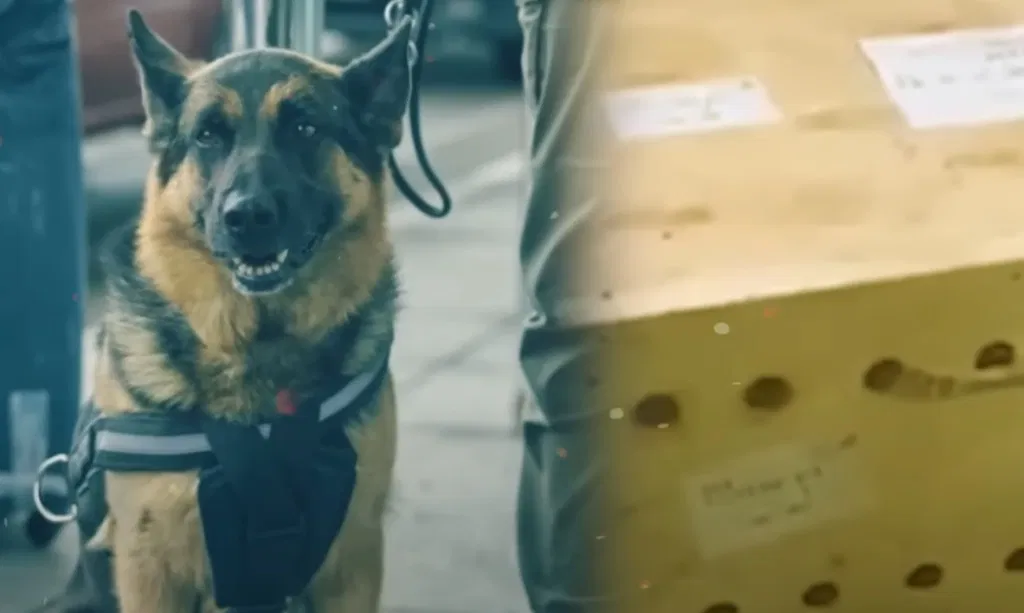Beirut’s Rafic Hariri International Airport is one of the busiest places in Lebanon. As the country’s only major passenger and cargo hub, it welcomes thousands of travelers and handles countless shipments every single day. With such constant activity, maintaining safety is no small task. Security checks are carried out by a large team of officers, yet some of the most effective members of the airport’s security force don’t wear uniforms—they walk on four legs.

Specially trained detection dogs are an essential part of airport operations. These intelligent and highly disciplined animals are capable of picking up scents that human officers could never detect. From explosives and narcotics to undeclared cash and even living creatures, these dogs are trained to spot danger quietly and effectively. Instead of barking, which could cause panic, a detection dog will freeze, stare, or otherwise alert its handler discreetly. This subtle behavior allows officers to respond quickly and appropriately.
One day, during routine inspections in the cargo terminal, one of these dogs proved just how vital its role truly was. The dog and its handler were patrolling near a group of packages that had been waiting for further shipment. As they passed by, the dog suddenly stopped in front of a large box marked as coming from Kazakhstan. At first glance, it looked no different from any other package stacked in the terminal. But the dog’s behavior told a different story.
The dog froze in place, its body tense and its eyes locked on the box. The handler, trained to trust these subtle signals, immediately understood that something inside wasn’t right. To confirm, he allowed the dog to approach closer. What happened next surprised everyone—the dog jumped onto the box, whining and pawing at it as if desperate to draw attention. Such strong reactions were rare, which meant that whatever was inside demanded urgent investigation.
The officer noticed something unusual: tiny holes had been drilled along the sides of the box, almost as if for ventilation. This discovery raised red flags. Although the box seemed ordinary on the outside, it clearly needed a closer inspection. Following strict protocol, the handler called for backup. The package was carefully moved to a secure area, and due to the risk of explosives, a bomb disposal unit was summoned.
Even though the box had been screened before, no chances were taken. Staff members were evacuated from the immediate area, though the determined dog repeatedly tried to return to the suspicious package. Its unusual insistence even puzzled its experienced handler. Once the bomb squad confirmed it was safe to proceed, officers slowly opened the box.
What they found inside was completely unexpected. Instead of weapons or explosives, the box contained two small tiger cubs. They were in poor condition, lying in sawdust that had become damp and dirty. The cubs looked weak, their fur was tangled, and they were clearly dehydrated and malnourished. It was heartbreaking to realize that these young animals had likely been trapped in the box for days without proper care, food, or water.
Veterinarians and animal welfare teams were immediately called to the scene. The cubs, a male and a female, were quickly transferred to a specialized shelter where they could receive the urgent care they needed. Staff members named them Tobby and Sophie. At first, their survival seemed uncertain, but with the right nutrition, medical treatment, and constant monitoring, both cubs began to recover. One positive outcome was that they were not separated, allowing them to stay together and find comfort in each other’s presence.
As investigations unfolded, authorities discovered that the cubs had been part of a larger litter of five and were illegally sold from a zoo in Kazakhstan. Tragically, the whereabouts of the other three cubs remain unknown. The director of the zoo involved in this smuggling operation was later arrested and sentenced to a lengthy prison term for his role in the trafficking scheme.
This case highlighted not only the cruelty of the illegal wildlife trade but also the global scale of the problem. Smugglers continue to exploit exotic animals, transporting them in dangerous and inhumane ways for profit. Such practices threaten both the survival of endangered species and the balance of ecosystems worldwide.
Thankfully, in this instance, two lives were saved thanks to the instincts of a loyal and well-trained service dog. What could have been another hidden tragedy instead turned into a story of resilience and hope. Tobby and Sophie’s survival stands as proof of the importance of airport security teams, both human and canine, in protecting not just people but also vulnerable animals.
The story quickly spread, inspiring many with its reminder of the incredible bond between humans and animals. The dog’s handler later shared that he had never been prouder of his four-legged partner. The airport community also praised the dog’s persistence, acknowledging that without its keen senses and determination, the cubs might never have been discovered in time.
In the end, what began as an ordinary day at Beirut’s airport turned into a remarkable rescue operation. While the fight against illegal wildlife trafficking continues, this event serves as a reminder that vigilance, teamwork, and the instincts of one extraordinary dog can make all the difference.





